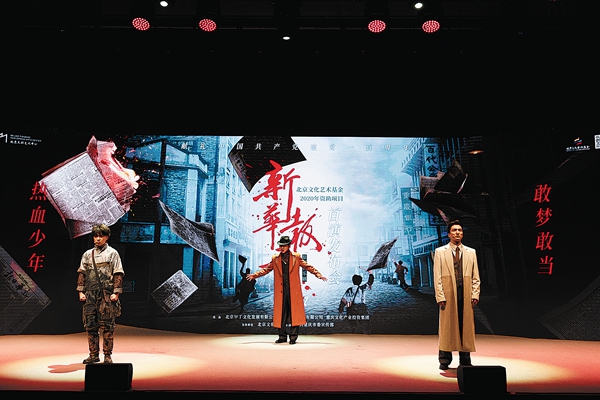

They portray the roles of teenagers selling newspapers on the streets of Chongqing. To better connect with the audience, the musical has taken a more contemporary approach with the language use, costumes, and most importantly the music.
"Though the musical tells a story from decades ago, we believe the young audience will find a connection to it because it's a timeless topic about young people pursuing their dreams," says Cao Yu, scriptwriter and producer of the musical. "Like today's young people, those teenagers selling newspapers in Chongqing were full of passion and optimism despite living through the war with poor life circumstances."
He Qi, the musical's songwriter, wrote songs in contemporary music genres such as hip-hop, rock and pop. He writes and produces music for national galas, movies and television dramas.
"The local dialect of Chongqing is very rhythmic, which inspired me to write songs for the musical," He says.
The songwriter also combined the melody of a Chinese song Mai Bao Ge, which was written by Nie Er in 1933, into the musical. The song is popular among Chinese people and is still performed to this day, especially by children's choirs. Nie wrote the song in Shanghai when he saw a little girl selling newspapers on the street.
Jia says he hopes that many young Chinese people of today will be touched by the stories of the youth who were willing to give up their lives for the future of the country.
"Our hard-won peaceful life is created by many martyrs who sacrificed their lives for the country," he says. "Young people also played an important role during the war. Their stories deserve to be known and shared by today's young people."